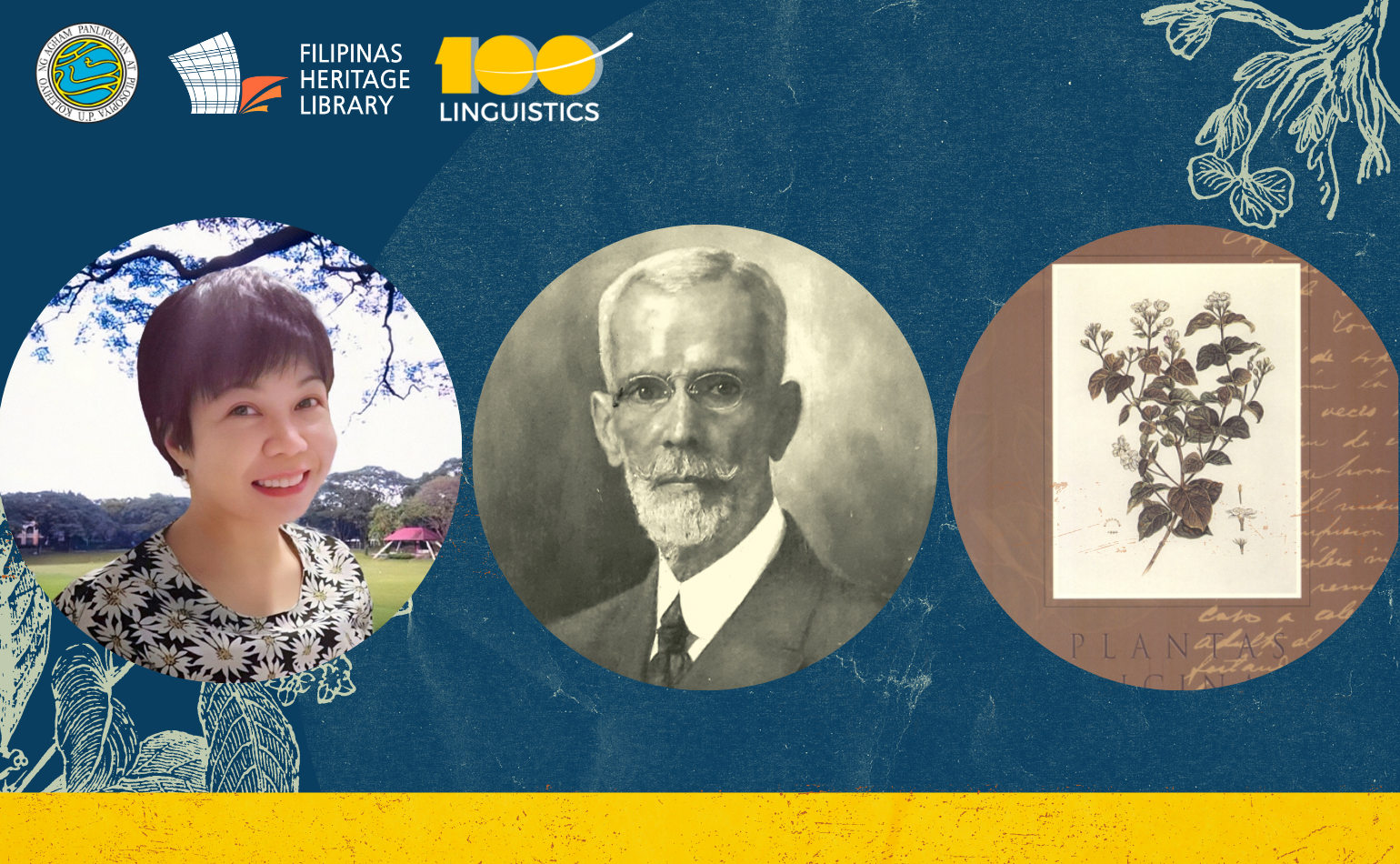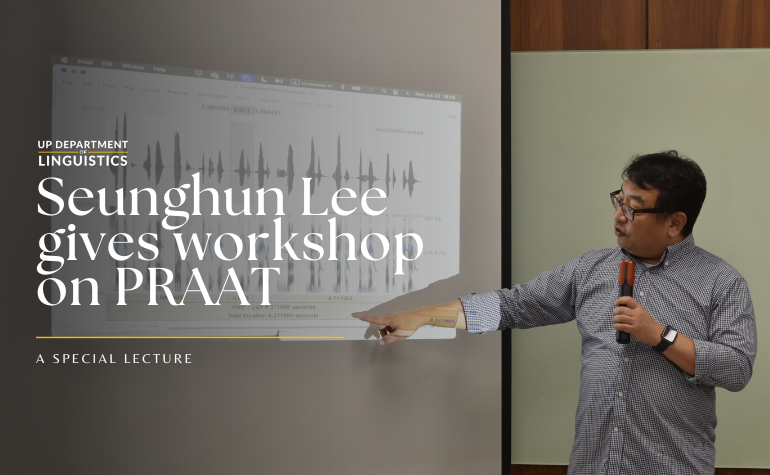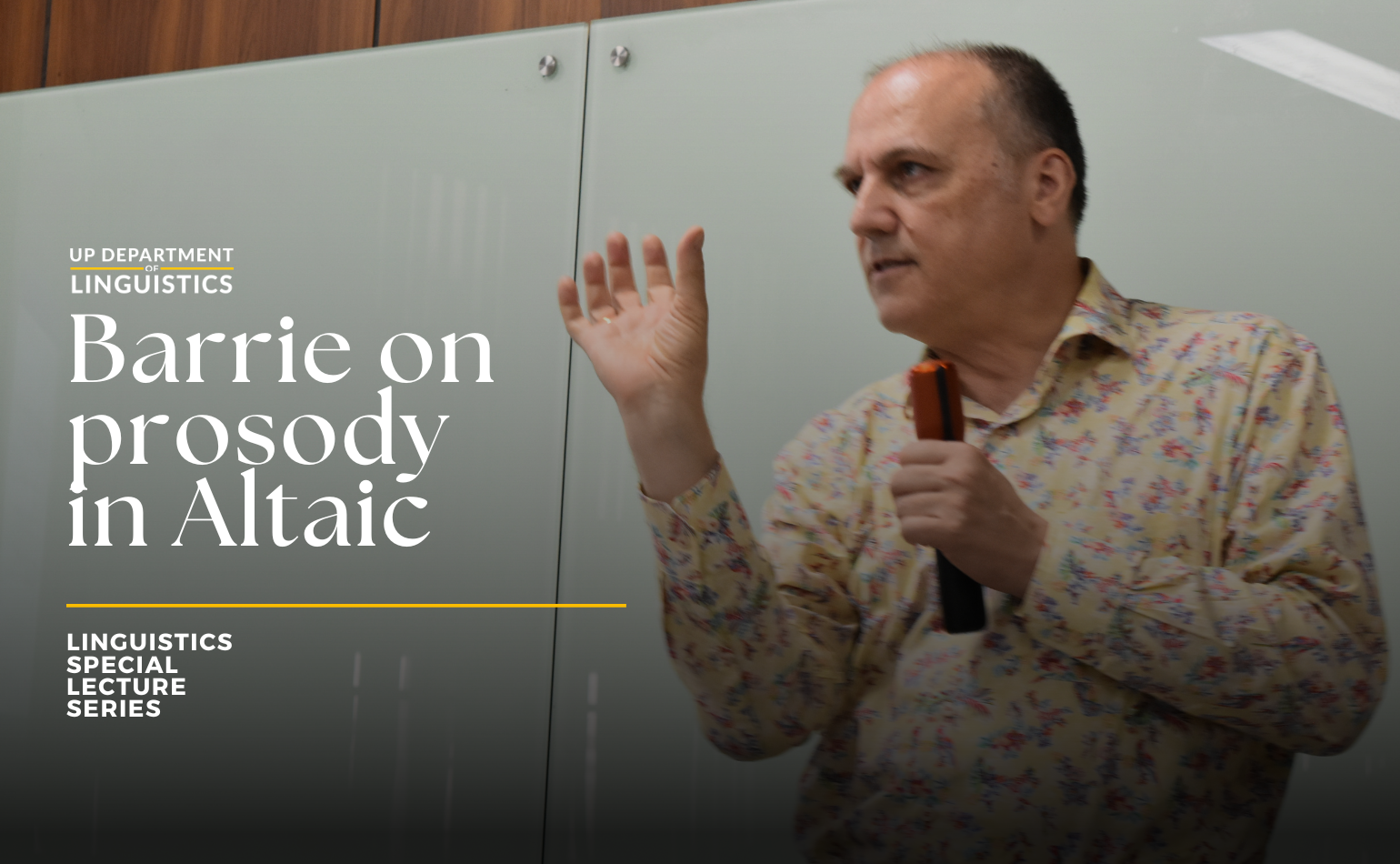
On September 29, 2022, the Department hosted the online lecture, ‘Man of his Time, Man Ahead of his Time – Trinidad Pardo de Tavera 1857-1925: Premier Filipino Filipinist’ as part of its centennial celebration. This event, which was done in partnership with the Filipinas Heritage Library, saw expert Dr. Ma. Mercedes Planta of the UPD Department of History detail the life and contributions of Trinidad H. Pardo de Tavera, the first chair of the Department of Linguistics. The lecture was broadcast live on the Department’s official Facebook and YouTube accounts.
Planta began her lecture by giving an account of Trinidad H. Pardo de Tavera’s early life. Pardo de Tavera was born in 1857, a mestizo of Spanish and Portuguese descent. After the death of his father in 1864, he became a ward of his uncle Joaquin, a lawyer. When Joaquin and his family were exiled from the Philippines for his involvement in the Cavite Mutiny (the event that saw the execution of the Filipino Catholic priests Mariano Gomez, Jose Burgos, and Jacinto Zamora), Pardo de Tavera and his siblings joined them in Paris, where they received their education at the center of European liberalism and 19th century intellectual life.
While in Paris, Pardo de Tavera earned his medical degree in 1881. It was a time, Planta said, of great scientific progress. Scientists of the age like Louis Pasteur and Robert Koch were instrumental in improving understanding of the human person, a component of a greater conflict at the time between scientific and religious knowledge. It was in this atmosphere that Pardo de Tavera received his medical training, which he would supplement with a degree in the Malay language and a burning love of languages.
Planta then gave an overview of some of Pardo de Tavera’s important language-related publications. These examples included “Noticias Sobre la Imprenta y El Grabado en Filipinas” (1893), a book detailing the beginnings of printing in the Philippines; and “Contribución para el estudio de los antiguos alfabetos Filipinos,” a detailed tract highlighting the fact that Filipinos possessed a precolonial writing system. Though these works were scholarly, Planta said that they were also in part political. They reflected, she said, of Pardo de Tavera’s resolve that his intellectual undertakings would be about the Philippines and would strive to describe Filipinos on their own terms. These studies would also debunk previous racist scholarship by Spanish authors that denigrated Filipinos both in their own eyes and in the eyes of the world.
Planta then described her favorite of Pardo de Tavera’s language-related works, “El Sanscrito en la Lengua Tagalog.” The reason for this favor, she said, is that through exploring Tagalog’s affinity with languages such as Sanskrit, Pardo de Tavera hypothesized in the book that an area in precolonial Philippines saw a period of Hindu domination. He came to this conclusion through his analysis that many words of distinctly political import were in fact very Indian. She said this is not obvious today as the Philippines is perhaps the Southeast Asian country with the least visible Indian influence. This observation was a testament to Pardo de Tavera’s forward-looking and measured approach to doing language research.
After showing old news articles that evidenced both Pardo de Tavera’s unyielding, straightforward personality, and his misgivings against ‘Filipinization’, Planta began her analysis of the famous “Plantas Medicinales de Filipinas,” Pardo’s treatise documenting medicinal plants of the Philippines, together with their locations, botanical descriptions, and uses. According to Planta, it was not only the gold-standard for such a publication in his day but was also unique in that a man of thorough scientific training like Pardo de Tavera would depict Filipino culture in a way that previous scholars never would. Pardo de Tavera, the man of science, would shine a light on the domain of traditional Filipino healers, calling their expertise a product of “empiricism which is founded on daily experience”. Thus, this traditional knowledge is given a level validity that runs against the denigration of Filipino culture by Spanish sources. She explained this in detail through discussions of individual plants – some Pardo de Tavera even tested on himself – and how Pardo de Tavera documented both their scientific and sociocultural importance.
“Pardo de Tavera always declared that he was more Filipino than any Filipino,” Planta said. “Because all his works were devoted to elevating Filipino culture.” In her opinion, Pardo de Tavera was a man whose intellectual output “outweighs anyone” in depth and breadth, even in the 21st century. While conducting research of the highest quality, Pardo de Tavera’s works were also “rooted in the desire to discover Philippine society, culture, and ways of life for the Filipino,” she said. From this knowledge, Filipinos could then take pride in their own culture. “After going over his work,” she added, “I believe that Pardo de Tavera does not need to be qualified. Pardo de Tavera is just the premier Filipino Filipinist”.
Guests lauded both Pardo de Tavera’s legacy, and the Department’s recent efforts to uphold it. For instance, UPD College of Social Sciences and Philosophy Dean Maria Bernadette Abrera notably praised the Department’s recent extension efforts, which she said is rooted in its mission to study, shepherd, and forward Philippine languages through teaching and research. She specifically cited the Department’s Language Warriors initiative to translate pertinent COVID-19 related information into different Philippine languages as an act going ‘above and beyond’ its traditional mandate.
“Language is only the starting point,” Abrera concluded. “In the articulation of similarities and differences, we find the beginning of our understanding of our culture and our past. In the end, language leads us to a journey to transcendence and what lies beyond it.
The recording of Dr. Mercedes Planta’s talk titled “Man of His Time, Man Ahead of His Time: Trinidad Pardo de Tavera, Premier Filipino Filipinist” is available on the Department’s YouTube channel.
Published by Andre Encarnacion



